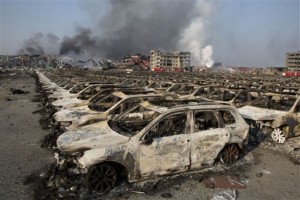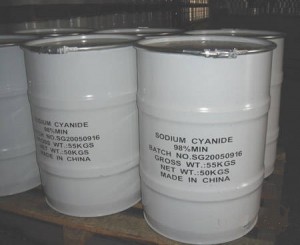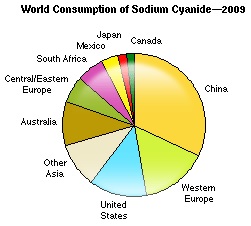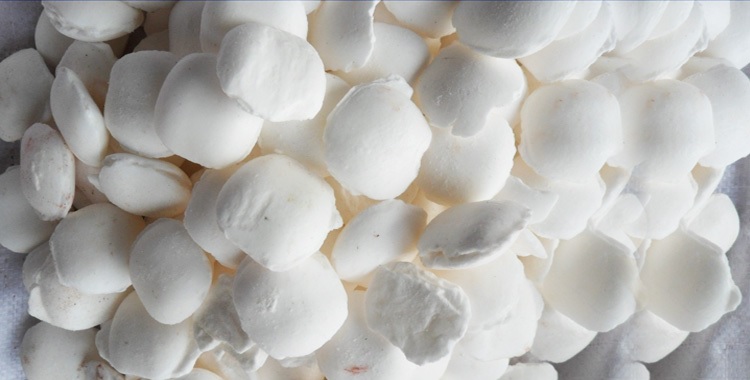
Dangerous chemical cocktail in the Tainjin explosions
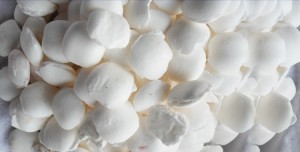
The Tianjin explosions in the warehouse owned by Ruihai International Logistics, contained calcium carbide, potassium nitrate, ammonium nitrate and 700 tonnes of Sodium cyanide stored in wooden boxes or iron barrels.
Calcium carbide CaC₂ is used in the production of PVC plastic and can be harmful if touched or breathed, potassium nitrate, KNOᴣ and ammonium nitrate NH4NOᴣ are used in producing fertiliser and dynamite and sodium cyanide is used in the mining industry to extract gold- these chemicals can easily explode if heated or collided on impact. According to chemical experts sodium cyanide is soluble in water and can be rapidly fatal if inhaled or ingested and releases highly poisonous gas hydrogen cyanide when dissolved or burned. Sodium Cyanide NaCN extremely poisonous crystalline compound, the production process NaCN+H₂0 ˂-˃HCN+NaOH, the main applications of sodium cyanide is extracting both gold and silver from ores ( cyanide leach), as well as zinc-plating and gilding metal products, also used in zinc oxide and sodium hydroxide ( caustic soda).
Potassium nitrate can cause breathing problems and damage to kidneys, while ammonium nitrate can be toxic when burned.
Sodium cyanide running off into groundwater systems could pose a public health risk, and people in Tianjin as a precaution for health and safety, should consider drinking only bottled water.
There are standard global safety regulations for producing, transporting and storing hazardous chemicals, but these are extremely numerous and depend on the type of chemical and its toxicity.
Chinese law states that businesses dealing in dangerous chemicals must store such materials at least 1km from public buildings and transport networks. But the reality is taht three major residential communities were located within a 1km radius of the Ruihai warehouse.

